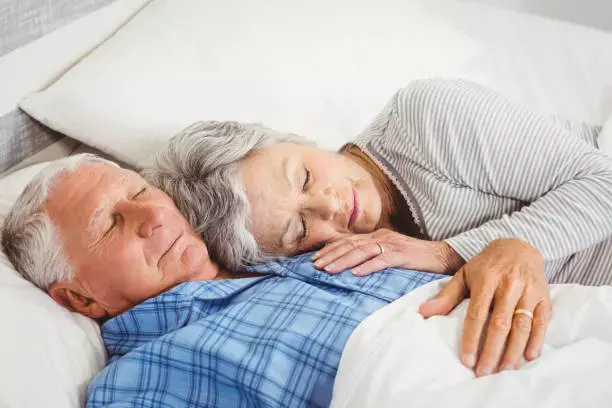- Home
- Medical news & Guidelines
- Anesthesiology
- Cardiology and CTVS
- Critical Care
- Dentistry
- Dermatology
- Diabetes and Endocrinology
- ENT
- Gastroenterology
- Medicine
- Nephrology
- Neurology
- Obstretics-Gynaecology
- Oncology
- Ophthalmology
- Orthopaedics
- Pediatrics-Neonatology
- Psychiatry
- Pulmonology
- Radiology
- Surgery
- Urology
- Laboratory Medicine
- Diet
- Nursing
- Paramedical
- Physiotherapy
- Health news
- Fact Check
- Bone Health Fact Check
- Brain Health Fact Check
- Cancer Related Fact Check
- Child Care Fact Check
- Dental and oral health fact check
- Diabetes and metabolic health fact check
- Diet and Nutrition Fact Check
- Eye and ENT Care Fact Check
- Fitness fact check
- Gut health fact check
- Heart health fact check
- Kidney health fact check
- Medical education fact check
- Men's health fact check
- Respiratory fact check
- Skin and hair care fact check
- Vaccine and Immunization fact check
- Women's health fact check
- AYUSH
- State News
- Andaman and Nicobar Islands
- Andhra Pradesh
- Arunachal Pradesh
- Assam
- Bihar
- Chandigarh
- Chattisgarh
- Dadra and Nagar Haveli
- Daman and Diu
- Delhi
- Goa
- Gujarat
- Haryana
- Himachal Pradesh
- Jammu & Kashmir
- Jharkhand
- Karnataka
- Kerala
- Ladakh
- Lakshadweep
- Madhya Pradesh
- Maharashtra
- Manipur
- Meghalaya
- Mizoram
- Nagaland
- Odisha
- Puducherry
- Punjab
- Rajasthan
- Sikkim
- Tamil Nadu
- Telangana
- Tripura
- Uttar Pradesh
- Uttrakhand
- West Bengal
- Medical Education
- Industry
Afternoon napping promotes cognitive function in the elderly: Study

Among the elderly, habitual as well as non-habitual afternoon nappers show an improved cognitive function according to a study published in General Psychiatry.
According to the National Sleep Foundation, an afternoon nap of around 20-30 minutes is best for boosting alertness and mental performance, without interfering with nighttime sleep. The new study, however, suggests that an afternoon nap of around 1 hour is ideal for improving cognitive functioning among older adults. In addition to this study there have been several studies in the past that have shown that afternoon napping promotes cognitive function in the elderly; on the other hand, some studies have shown opposite results.
A study was conducted by a group of Chinese researchers to further examine the relationship between afternoon napping and cognitive function in the aging Chinese population.
The researchers selected a total of 2214 elderly were included (napping group: n=1534; non-napping group: n=680).
They all received cognitive evaluations by the Beijing version of the Montreal Cognitive Assessment, the Mini-Mental State Examination, and the Chinese version of the Neuropsychological Test Battery.
Among all the subjects, 739 elderly volunteered to take blood lipid tests.
The results of the study are as follows:
- Significant differences in cognitive function and blood lipids were observed between the napping and the non-napping groups.
- Afternoon napping was associated with better cognitive function including orientation, language, and memory in the present study.
- Subjects with the habit of afternoon napping also showed a higher level of triglyceride than the non-napping subjects.
- Through this prospective intervention study, both habitual and non-habitual nappers performed better on long-term memory tasks after an afternoon nap as compared to controls.
- Habitual nappers demonstrated improved performance on both short and long-term memory tasks following an afternoon nap as compared to those who remained awake
The researchers concluded that as per the results afternoon napping was related to better cognitive function in the Chinese ageing population.
Reference:
A study titled, "Relationship between afternoon napping and cognitive function in the aging Chinese population" by Cai H et. al published in the General Psychiatry.
http://dx.doi.org/10.1136/gpsych-2020-100361
Dr. Shravani Dali has completed her BDS from Pravara institute of medical sciences, loni. Following which she extensively worked in the healthcare sector for 2+ years. She has been actively involved in writing blogs in field of health and wellness. Currently she is pursuing her Masters of public health-health administration from Tata institute of social sciences. She can be contacted at editorial@medicaldialogues.in.
Dr Kamal Kant Kohli-MBBS, DTCD- a chest specialist with more than 30 years of practice and a flair for writing clinical articles, Dr Kamal Kant Kohli joined Medical Dialogues as a Chief Editor of Medical News. Besides writing articles, as an editor, he proofreads and verifies all the medical content published on Medical Dialogues including those coming from journals, studies,medical conferences,guidelines etc. Email: drkohli@medicaldialogues.in. Contact no. 011-43720751


